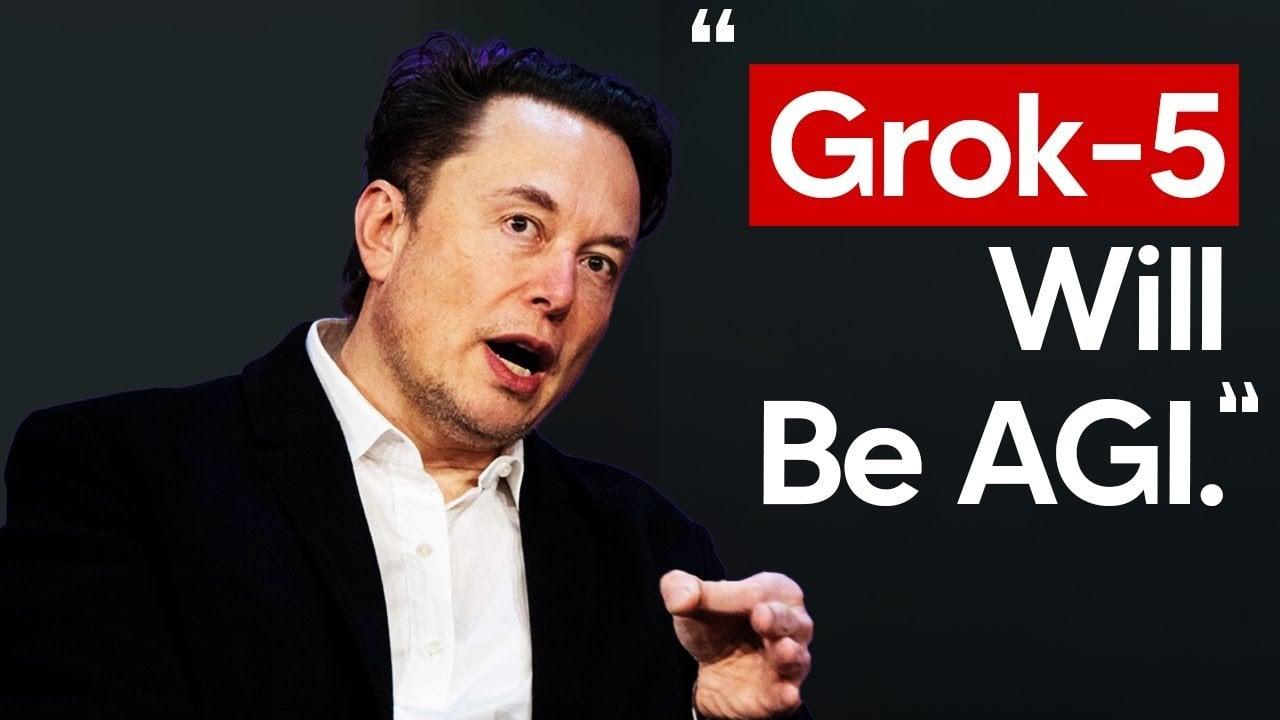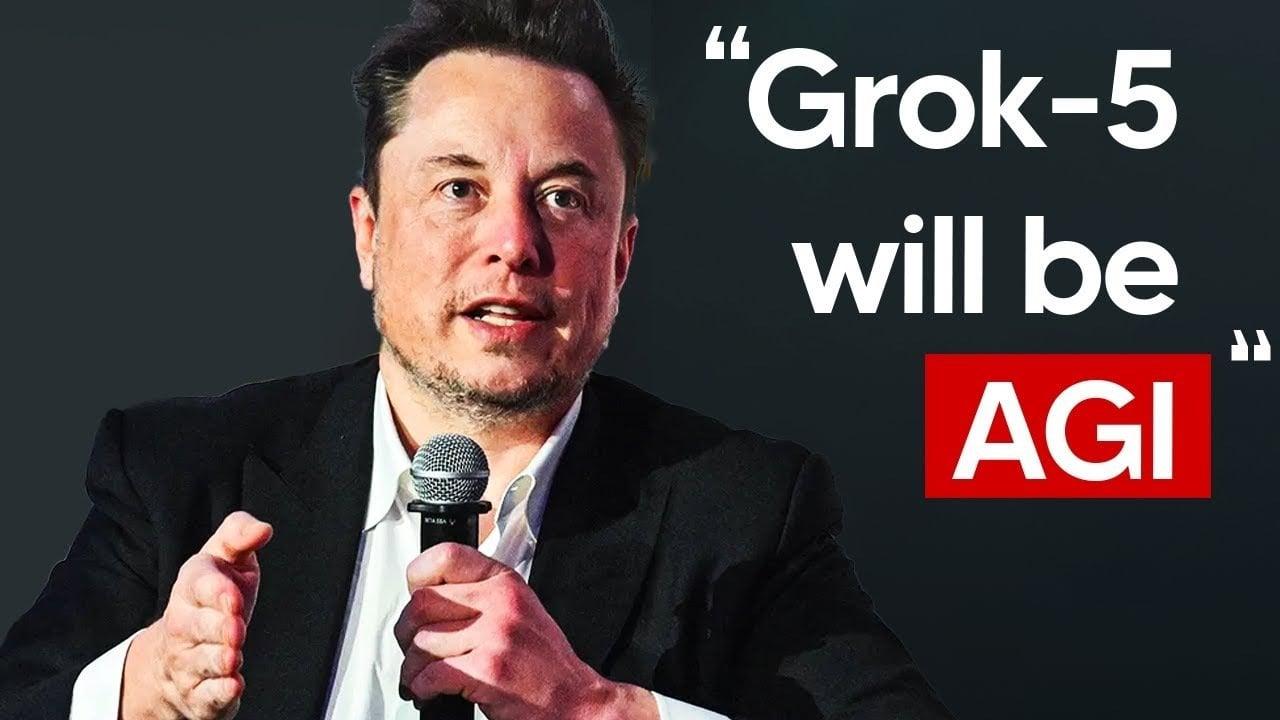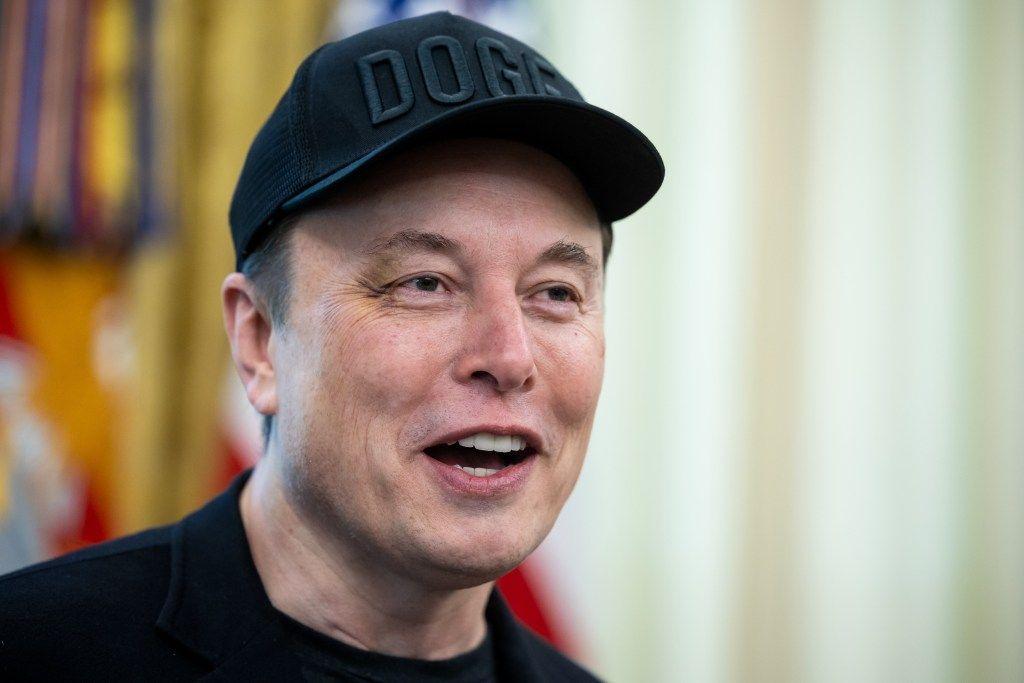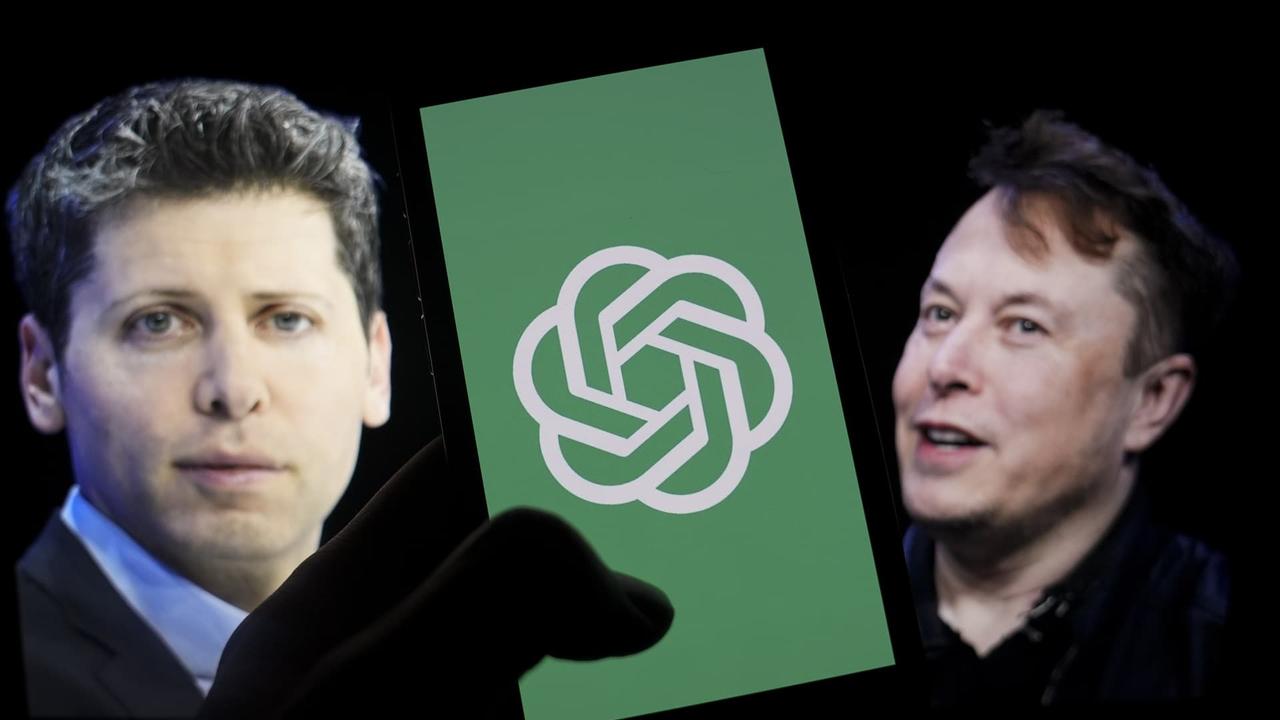Elon Musk's AGI Claim for Grok 5 Sparks Debate in AI Community
2 Sources
2 Sources
[1]
OpenAI Researcher Mocks Elon Musk's AGI Claim to His Face
Inveterate overpromiser Elon Musk is teasing that his chatbot Grok could soon "achieve artificial general intelligence," or AGI -- a hypothetical form of AI system that surpasses humans in virtually every way, and remains the white whale of the AI industry. "My estimate of the probability of Grok 5 achieving AGI is now at 10 percent and rising," Musk wrote on his website X, formerly Twitter, on Saturday. Like a good courtier, an employee at Musk's AI firm xAI was there to boost Musk's claim within the hour. "I trust this forecast of probability," tweeted the employee Aditya Gupta. (This is the same worker who a few months ago was publicly chewed out by his boss for using the word "researcher" instead of "engineer." At the time, Gupta issued a sheepish correction.) And thus began a sycophant game of telephone. Musk, in response to someone praising his own prediction, interpreted that as a sign to double down on it -- while at the same time hedging his bets, somehow. "Grok 5 will be AGI or something indistinguishable from AGI," an emboldened Musk proclaimed. Musk made a similar bet in 2024, predicting AGI would come "within two years." He also teased last month that Grok 5 "has a chance" of reaching AGI. But is it a ten percent chance? Or is it something that "will," as in absolutely, happen, per his latest tweet? Raising pedantic quibbles like these will make Musk very mad at you, apparently. Because that's what exactly OpenAI research scientist Gabriel Petersson did. "10 percent chance Elon declares he reached AGI a fourth time," Petersson, who works on the company's video generating AI Sora, joked. "It's no longer first to AGI, it's first to 10 AGIs." Musk fumed in the replies, reaching back to his strange bugbear about "researchers" versus "engineers" that had previously caused him to rage at Gupta. "You call yourself a 'researcher,'" he wrote. "Pathetic." Musk is in a bitter rivalry with OpenAI, a company he helped cofound in 2015 with its current CEO Sam Altman. Musk departed the firm, which is now being valued at half a trillion dollars, in late 2018 reportedly because of clashing with Altman's direction. The two have been feuding ever since, with Musk firing off several lawsuits against his former company. They also have different definitions of AGI: Musk considers it an AI that's either "smarter than the smartest human" he said in 2024, or "capable of doing anything a human with a computer can do," he said in a recent tweet (good luck pinning him down on anything.) OpenAI officially defines it as a "highly autonomous system that outperforms humans at most economically valuable work," but Altman is also on the record saying that AGI is "not a super useful term," despite continuing to use it. All that said, it's a little rich that an OpenAI employee is taking the high ground on AI predictions. Its head honcho Altman has repeatedly exaggerated the capabilities of his own tech and has also hyped AGI as something just around the corner; last year, he proclaimed that AGI is achievable with "current hardware," for example. In the build up to the launch of OpenAI's newest GPT-5 model this summer -- considered a massive disappointment by many -- Altman declared it a "significant step along the path to AGI." He even called the model "generally intelligent." It's the same slimy salesmanship as Musk, only less stupid-sounding.
[2]
Grok 5 Will Be AGI : Elon Musk's Audacious Claim Examined & Explained
What if the next leap in artificial intelligence could rival human intellect itself? Elon Musk has reignited this tantalizing possibility with his audacious claim that Grok 5, the forthcoming iteration of his AI model, could achieve Artificial General Intelligence (AGI). Often regarded as the "holy grail" of AI research, AGI represents a system capable of performing any intellectual task a human can, with the adaptability and reasoning skills to match. Musk's assertion, backed by a growing 10% probability of success, has electrified the tech world, fueling both excitement and skepticism. Could Grok 5 truly redefine the limits of AI, or is this another bold vision that risks overpromising? In this exploration, AI Grid dissect what makes Grok 5 a potential fantastic option and why Musk's vision is both thrilling and polarizing. From the technical strides of its predecessor, Grok 4, to the monumental challenges that AGI still faces, such as long-term memory and continuous learning -- this perspective will unravel the layers behind Musk's claim. Along the way, we'll examine the ethical, economic, and societal implications of AGI, as well as the heated debates it has sparked within the AI community. Whether you're a skeptic or a believer, one thing is clear: the journey toward AGI isn't just about technology, it's about reshaping the very fabric of human innovation. AGI, often referred to as the "holy grail" of AI research, represents a system capable of performing any intellectual task that a human can do. If Musk's prediction holds true, Grok 5 could mark a pivotal moment in AI development, but the road to AGI is fraught with technical, ethical, and conceptual hurdles. Understanding Musk's vision, the current state of Grok 4, and the broader implications of AGI is essential to grasp the significance of this claim. Musk envisions Grok 5 as a new AI system capable of achieving AGI, which is defined as intelligence that matches or surpasses the cognitive abilities of a well-educated adult. Unlike current AI systems that excel in narrow, task-specific domains, AGI would possess the versatility, adaptability, and reasoning skills of human intelligence. This leap would represent a monumental shift in the capabilities of AI, potentially allowing machines to perform complex tasks across a wide range of disciplines without requiring extensive retraining. Musk's confidence in Grok 5 stems from its anticipated advancements in reasoning, problem-solving, and adaptability. Grok 4, its predecessor, has already demonstrated significant progress in these areas, particularly in text-based reasoning tasks. However, many experts remain cautious, emphasizing that AGI requires breakthroughs in areas where current AI systems still fall short. Musk's vision is undeniably ambitious, but the path to AGI is far from straightforward. Grok 4 set a strong foundation for its successor by excelling in reasoning benchmarks such as the ARC AGI2 leaderboard, which evaluates human-like problem-solving skills. Its performance highlighted its strengths in text-based reasoning, a capability shared by other large language models (LLMs) like GPT-4. However, Grok 4 also revealed significant limitations that underscore the challenges of achieving AGI. These limitations highlight the gap between current AI capabilities and the requirements for AGI. While Grok 4's achievements are impressive, they also serve as a reminder of the significant technical hurdles that remain. Check out more relevant guides from our extensive collection on Artificial General Intelligence (AGI) that you might find useful. The pursuit of AGI is one of the most ambitious goals in AI research, but it is also one of the most complex. Several key challenges must be addressed to make AGI a reality: These challenges are not merely technical; they also involve philosophical and ethical questions about the nature of intelligence and the role of AI in society. Overcoming these barriers will require not only technological innovation but also interdisciplinary collaboration and a commitment to responsible development. Musk's prediction has elicited a wide range of reactions from the AI community. Some experts view his claim as overly optimistic, while others see it as a bold but plausible vision for the future. Andrej Karpathy, a prominent AI researcher, has highlighted the limitations of current LLMs, particularly their inability to learn continuously or retain user feedback effectively. Similarly, Gary Marcus, a well-known critic of exaggerated AI claims, has publicly challenged Musk's prediction, even offering a wager to test its validity. While opinions differ, there is a consensus that achieving AGI will require breakthroughs that have yet to materialize. Many researchers caution against overhyping AGI's timeline, emphasizing the importance of setting realistic expectations. At the same time, Musk's claim has sparked renewed interest and debate, underscoring the significance of AGI as a fantastic goal for the AI industry. The pursuit of AGI is not just a scientific endeavor; it also carries profound economic and industrial implications. Companies are investing billions of dollars in AI research and infrastructure, driven by the potential of AGI to transform industries ranging from healthcare to finance. However, these investments come with significant risks. These factors highlight the high stakes involved in the race to AGI. While the potential rewards are immense, the path forward is uncertain, requiring careful planning and strategic decision-making by companies and investors alike. Grok 5 represents a critical step in the journey toward AGI, building on the successes and addressing the limitations of its predecessor. Its development will serve as a test case for the feasibility of AGI and its broader implications for the future of artificial intelligence. Whether Grok 5 achieves AGI or not, its progress will provide valuable insights into the challenges and opportunities of creating truly general AI systems. The AI community remains divided on the timeline and likelihood of AGI, with some optimistic about potential breakthroughs and others urging caution against overhyped claims. Regardless of the outcome, the pursuit of AGI will continue to drive innovation, challenge existing paradigms, and redefine the boundaries of what AI can achieve. As the debate unfolds, one thing is certain: the journey toward AGI will shape the trajectory of the AI industry for years to come.
Share
Share
Copy Link
Elon Musk's bold prediction about Grok 5 achieving AGI has ignited controversy and skepticism among AI researchers. The claim highlights the ongoing challenges and debates surrounding the development of artificial general intelligence.
Elon Musk's Bold AGI Claim Sparks Controversy and Skepticism
Elon Musk, the tech entrepreneur known for his ambitious predictions, has once again stirred the AI community with a provocative claim about artificial general intelligence (AGI). Musk recently announced on his social media platform X that his chatbot Grok, specifically the upcoming Grok 5 version, has a "10 percent and rising" probability of achieving AGI
1
.
Source: Geeky Gadgets
Understanding AGI and Musk's Vision
AGI represents a hypothetical form of AI that surpasses human intelligence in virtually every aspect. It's often described as the "holy grail" of AI research, capable of performing any intellectual task a human can do with adaptability and reasoning skills to match
2
.Musk's definition of AGI has varied, ranging from an AI "smarter than the smartest human" to one "capable of doing anything a human with a computer can do"
1
. His confidence in Grok 5's potential stems from anticipated advancements in reasoning, problem-solving, and adaptability2
.Skepticism and Challenges
However, Musk's claim has been met with skepticism from AI researchers and experts. Gabriel Petersson, an OpenAI research scientist, publicly mocked Musk's prediction, highlighting the recurring nature of such bold claims
1
.The path to AGI is fraught with significant challenges, including:
- Long-term memory and continuous learning
- Generalization across diverse domains
- Common sense reasoning
- Emotional intelligence and social cognition
- Self-awareness and consciousness
2
Industry Reactions and Debates
The AI community's response to Musk's prediction has been mixed. While some view it as overly optimistic, others see it as a bold but plausible vision for the future. Prominent AI researcher Andrej Karpathy has pointed out the limitations of current large language models (LLMs), particularly their inability to learn continuously or retain user feedback effectively
2
.Related Stories
The Broader Context of AI Hype
It's worth noting that Musk isn't alone in making grandiose claims about AI capabilities. Sam Altman, CEO of OpenAI, has also been criticized for exaggerating the capabilities of his company's technology and hyping AGI as an imminent achievement
1
.Conclusion
As the debate rages on, one thing is clear: the journey toward AGI isn't just about technological advancement. It involves complex ethical, philosophical, and societal implications that will shape the future of human-AI interaction. While Musk's claim has reignited interest in AGI, many researchers caution against setting unrealistic expectations and emphasize the need for responsible development in this rapidly evolving field.
References
Summarized by
Navi
Related Stories
Recent Highlights
1
Samsung unveils Galaxy S26 lineup with Privacy Display tech and expanded AI capabilities
Technology

2
Anthropic refuses Pentagon's ultimatum over AI use in mass surveillance and autonomous weapons
Policy and Regulation

3
AI models deploy nuclear weapons in 95% of war games, raising alarm over military use
Science and Research








